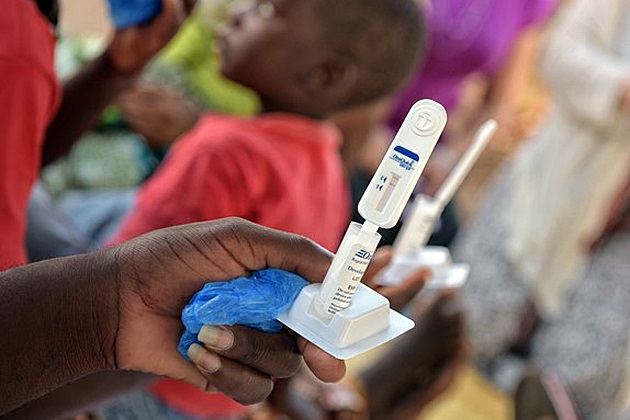
Kampala, Uganda | THE INDEPENDENT | The Ministry of Health has said that the using of HIV self-test kits among the key population is high.
Health Minister Jane Ruth Aceng says while it’s too early to evaluate how many people are using test kits, she says monthly reports to the ministry are showing high uptake, although concrete data about use patterns will be ready by September.
While HIV self-test kits were targeted to be primarily used by men since studies had found men especially those aged between 40 to 49 years had poor HIV testing coverage and yet this group has high prevalence, the Ministry of Health says the number using the kits is now high especially among the fishermen and men who have sex with fellow men and sex workers.
Makerere University is currently conducting a study among the fishermen of Kasensero landing site to test uptake and Dr. Joseph Matovu, the lead researcher from the School of Public Health said they initially gave out 298 kits to peer leaders in the area to give people in their social networks.
“Our results show that all peer-leaders successfully delivered the kits to their members, and people who heard that the peer-leaders were giving out free kits approached them for more.” he said test kits could become one of the best options for people seeking to know their HIV status since the country has not yet reached the 90% target set by the United Nations Program on HIV/AIDS (UNAIDs) of having all the people knowing their status by 2020.
Dr. Joshua Musinguzi, the AIDs Control Program Manager at the Ministry told URN in a phone interview that Uganda is almost hitting that target, now at 89%. He says because self-test kits have become popular among all gender and categories that they hadn’t planned for in September when they launched, some facilities have had a stock out and they are now urging those that can afford to buy from the private sector.
He however added that in the new grant from Global Fund that the country is expecting, $2.5million which has been allocated to self-testing. This money he says is a big boost since they are moving into targeted testing whereby they will ensure that males aged 15 to 39 are tested. “We want to make sure that whoever comes for male circumcision is tested or preferably given an option of going back home with a test kit. That’s one of the areas we want to tap into”.
******
URN
 The Independent Uganda: You get the Truth we Pay the Price
The Independent Uganda: You get the Truth we Pay the Price





